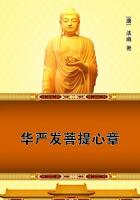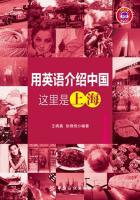How far does, as a matter of fact, the influence of economic freedom reach (or how far has it reached at any particular time)in any place, in any rank of society, or in any particular branch of industry? What other influences are most powerful there; and how is the action of all these influences combined? In particular, how far does economic freedom tend of its own action to build up combinations and monopolies, and what are their effects? How are the various classes of society likely to be affected by its action in the long run; what will be the intermediate effects while its ultimate results are being worked out; and, account being taken of the time over which they will spread, what is the relative importance of these two classes of ultimate and intermediate effects? What will be the incidence of any system of taxes? What burdens will it impose on the community, and what revenue will it afford to the State?
4.The above are the main questions with which economic science has to deal directly, and with reference to which its main work of collecting facts, of analysing them and reasoning about them should be arranged.The practical issues which, though lying for the greater part outside the range of economic science, yet supply a chief motive in the background to the work of the economist, vary from time to time, and from place to place, even more than do the economic facts and conditions which form the material of his studies.The following problems seem to be of special urgency now in our own country.--How should we act so as to increase the good and diminish the evil influences of economic freedom, both in its ultimate results and in the course of its progress? If the first are good and the latter evil, but those who suffer the evil, do not reap the good;how far is it right that they should suffer for the benefit of others?
Taking it for granted that a more equal distribution of wealth is to be desired, how far would this justify changes in the institutions of property, or limitations of free enterprise even when they would be likely to diminish the aggregate of wealth? In other words, how far should an increase in the income of the poorer classes and a diminution of their work be aimed at, even if it involved some lessening of national material wealth?
How far could this be done without injustice, and without slackening the energies of the leaders of progress? How ought the burdens of taxation to be distributed among the different classes of society?
Ought we to rest content with the existing forms of division of labour? Is it necessary that large numbers of the people should be exclusively occupied with work that has no elevating character? Is it possible to educate gradually among the great mass of workers a new capacity for the higher kinds of work; and in particular for undertaking co-operatively the management of the business in which they are themselves employed?
What are the proper relations of individual and collective action in a stage of civilization such as ours? How far ought voluntary association in its various forms, old and new, to be left to supply collective action for those purposes for which such action has special advantages? What business affairs should be undertaken by society itself acting through its government, imperial or local? Have we, for instance, carried as far as we should the plan of collective ownership and use of open spaces, of works of art, of the means of instruction and amusement, as well as of those material requisites of a civilized life, the supply of which requires united action, such as gas and water, and railways?
When government does not itself directly intervene, how far should it allow individuals and corporations to conduct their own affairs as they please? How far should it regulate the management of railways and other concerns which are to some extent in a position of monopoly, and again of land and other things the quantity of which cannot be increased by man? Is it necessary to retain in their full force all the existing rights of property;or have the original necessities for which they were meant to provide, in some measure passed away?
Are the prevailing methods of using wealth entirely justifiable? What scope is there for the moral pressure of social opinion in constraining and directing individual action in those economic relations in which the rigidity and violence of government interference would be likely to do more harm than good? In what respect do the duties of one nation to another in economic matters differ from those of members of the same nation to one another?
Economics is thus taken to mean a study of the economic aspects and conditions of man's political, social and private life; but more especially of his social life.The aims of the study are to gain knowledge for its own sake, and to obtain guidance in the practical conduct of life, and especially of social life.The need for such guidance was never so urgent as now; a later generation may have more abundant leisure than we for researches that throw light on obscure points in abstract speculation, or in the history of past times, but do not afford immediate aid in present difficulties.
But though thus largely directed by practical needs, economics avoids as far as possible the discussion of those exigencies of party organization, and those diplomacies of home and foreign politics of which the statesman is bound to take account in deciding what measures that he can propose will bring him nearest to the end that he desires to secure for his country.
It aims indeed at helping him to determine not only what that end should be, but also what are the best methods of a broad policy devoted to that end.But it shuns many political issues, which the practical man cannot ignore: and it is therefore a science, pure and applied, rather than a science and an art.And it is better described by the broad term " Economics ', than by the narrower term " Political Economy ".















